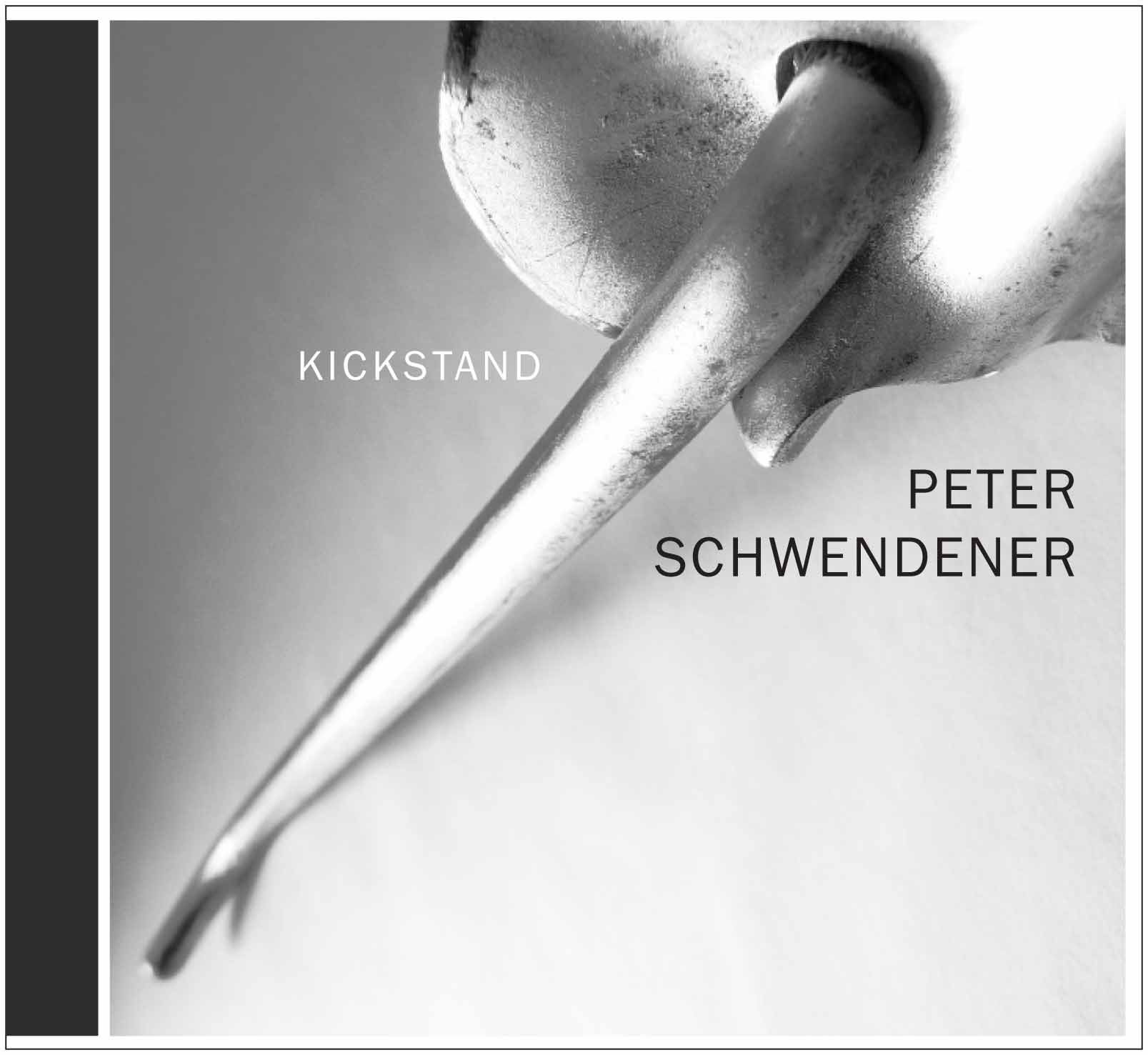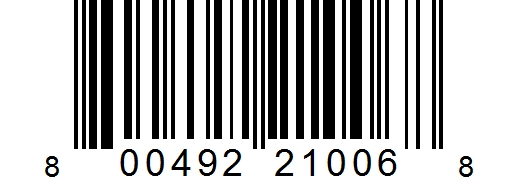REVIEWS
ChicagoJazz.com
Peter Schwendener – Piano
Dan Delorenzo – Acoustic bass
George Fludas – Drums
Art Davis – Trumpet
Bill Overton – Tenor saxophone
Lyricism is the pervasive theme on pianist Peter Schwendener’s Kickstand, a record inspired by his musical heroes. For this, he has assembled a quintet that includes trumpeter Art Davis whose Clifford Brown influenced style sways to the playful rhythms of “Shall We Dance.” The standard also features an adventurous and advanced piano improvisation that surprisingly meshes well with its more traditional small group swing feel.
Davis’s lilting, singing trumpet is also showcased on “Azure te (Paris Blues),” contrasting well with the leader’s deep and resonant piano lines that melt into Dan Delorenzo’s bass. Delorenzo opens Oscar Pettiford’s “Tricotism” with a creative solo. Although popularized by tenor saxophonist Lucky Thompson, Davis is the featured horn on the tune and his reconstruction of the melody brings in a fresh perspective.
Schwendener’s classical roots are apparent throughout, but are heard best on the bluesy sonata that makes up half of “Please Send Me Someone to Love?” before Delorenzo and drummer George Fludas join in, offering rhythmic support and creating an interesting echoing effect. The Randy Newman song, “I Think It’s Gonna Rain Today,” taken at faster tempo by the trio, features the rock and folk music side of Schwendener’s pianism.
The other member of the quintet is Bill Overton, whose thick and brassy tenor saxophone on “My Little Brown Book” lingers on each reverberating note in stark contrast to the sparsely played piano, where sound and silence alternate to create the melancholic mood. The centerpiece of the disc consists of two originals dedicated to Schwendener’s wife and daughter: the title track has distinct hard bop influences, with a loosely swinging piano and Overton’s gutsy saxophone complementing Davis’s lyrical trumpet. Both on “Kickstand” and the slightly more angular “Trundletown” Schwendener excels as both a composer and improviser.
The album closes with “Jump for Joy,” an arrangement that fuses an Ellingtonian elegance with a Ben Webster-like earthiness maintaining its jubilant spirit while improvising on the original song’s structure. Peter Schwendener’s freshman recording is a solid work that does justice to the legacy of the musicians who influenced him.
By: Hrayr Attarian
By: Jay Harvey, The Indianapolis Star, June 3, 2011
Chicago pianist Peter Schwendener has a fine quintet outing on “Kickstand” (Proteus), mostly of cannily arranged standards. He sets the pace and the interpretive manner for the group, something that’s a secret of leadership involving a delicate balance between decreeing a boring sameness and allowing a scattergun result of headstrong sidemen expressing themselves.
His style at the keyboard is understated, modestly allowing phrasing and an emphasis on melody to speak more substantially than decorative splash or virtuoso thunder can usually provide. I loved his reflective, unaccompanied opening in Billy Strayhorn’s “My Little Brown Book,” soon joined in spirit by Bill Overton’s laid-back tenor. The sax is “tacet” on Oscar Pettiford’s “Tricotism,” which bursts into swing-era swagger during trumpeter Art Davis’ solo. That outing doubtless was imbued with extra confidence by its immediate predecessor from bassist Dan Delorenzo. (You can’t call “Tricotism” without including a bass solo, after all.)
Tasteful drumming by George Fludas throughout helps make this an eminently charming set, capped by a rousing, yet somehow relaxed, tour through the Duke Ellington chestnut “Jump for Joy.
A note to jazz-minded travelers: For more information on the pianist’s June 7 gig at the Jazz Showcase in Chicago, go to http://www.peterschwendener.com
1/18/2011 4:11:00 PM
RHYTHMS & BOOKS 'Kickstand' Kickoff: New Jazz Release
Jazz pianist Peter Schwendener has just released his new 10-tune CD, “Kickstand.”
BY NATALIE WAINWRIGHT
Jazz pianist Peter Schwendener has just released his new 10-tune CD, “Kickstand.” On it are seven classics, two pieces written by Mr. Schwendener himself (“Kickstand” and “Trundletown”) and an instrumental version of the Randy Newman tune “I Think It’s Gonna Rain Today.”
Mr. Schwendener has been part of the Chicago jazz scene since 1979. He has played at some of the best-known music spots in town and the suburbs, among them the Jazz Showcase, Pete Miller’s, the Green Mill, and Pops for Champagne. The other members of the “Kickstand” ensemble are also accomplished musicians. Mr. Schwendener has “played on and off for 30 years” with bassist Dan Delorenzo. Drummer George Fludas, Mr. Schwendener says, is “one of the best jazz drummers in the world.” Trumpeter Art Davis is a teacher at U of Illinois and professor of jazz studies at NIU as well as a performer. Mr. Schwendener met saxophonist Bill Overton more recently, and says he is “a wonderfully extroverted musician” with an “exceptionally rich sound.” His own greatest influences, he says, have been Bill Evans, Wynton Kelly, Tommy Flanagan, Ellis Larkins, and horn players Miles Davis and Gene Ammons.
The music on “Kickstand” was recorded in 2008; release was delayed by the “mass of recorded material” they had to choose from, recorded over two evenings, and other concrete issues, such as cover design. The result is a suite of songs that fit pleasingly together and request unpretentiously that the listener think while listening – and listen again. It is a very tuneful collection in classic jazz style, with imaginative solos, great harmony and authoritative rhythm.
Mr. Schwendener says, “I’ve played all these pieces a fair amount. … I have a bias toward melody. I’m attracted to strong, simple melodies – and swing, obviously. …” He recalls recorded performances of the tunes on “Kickstand,” some of which drew him originally to try his own hand at them. Donald Wolf’s “Azure-te,” for instance, “was a big Nat King Cole hit in the 50s,” but it was a Kenny Burrell performance that caught his ear. “Al Hibbler did a great version of “My Little Brown Book,” by Billy Strayhorn, Mr. Schwendener says of the second, somewhat pensive tune.
The CD includes the exceptional bebop tune ‘Tricrotism” by Oscar Pettiford (“an icon to all bassists”), with wonderful solos; a thoughtful rendition of Randy Newman’s song; Rodgers and Hammerstein’s “Shall We Dance?”; Percy Mayfield’s “Please Send Me Someone to Love”; Gene Ammons’s slow blues “Hittin’ the Jug” and the classic “Jump for Joy.”
The two songs written by Mr. Schwendener himself, “Kickstand” and “Trundletown,” are extremely enjoyable, with distinctive melodies and engaging solos by all members of the band.
“Kickstand,” in C sharp minor, dedicated to Mr. Schwendener’s wife, Joanne, came about when she overheard him messing about on the piano in his parents’ living room and was struck by a motif she noticed. It is a speedy tune with an interesting melody, carried out joyfully and expertly by the musicians together and individually in their solos. Of the name, Mr. Schwendener says he “likes the word. It’s paradoxical, implying movement and inertia.”
“Trundletown,” in A flat major, an extremely nice tune, is, Mr. Schwendener says, “just a ‘rhythm’ – it’s based on the changes of George Gershwin’s ‘I Got Rhythm.’” It opens with drums and moves quickly into a nice rolling tune that has one’s feet tapping immediately. The trumpet and sax solos by Mr. Davis and Mr. Overton are lovely, as is Mr. Delorenzo’s bass solo later in the tune. Mr. Schwendener’s own solo is, assertively thought-provoking and a pleasure to listen to. Mr. Fludas on drums is perfect.
This is a CD people who love jazz will enjoy. It can be purchased through Mr. Schwendener’s website, peterschwendener.com, and soon through CDBaby and other sources. He and Dan Delorenzo will also be performing at a Beadazzled music night at Beadazzled Beads on Central Street, 7:30-9:30 p.m., tomorrow, Jan. 20.
The Musician
Mr. Schwendener came to Evanston as a student in 1979, as an undergraduate transfer to Northwestern after spending a year at the Berklee School of Music in Boston (to “meet other players” and to “soak up the atmosphere”). Graduating with a BA in English in 1981 – his thesis, he says, was on the “idea of biography” using writings on the poet Samuel Coleridge – he then began looking for music gigs in Chicago.
His first gig was in Evanston: a regular job “playing 4 nights a week for good money” at the Holiday Inn Evanston. He says wryly, “I thought I had it made, that I’d be doing this forever. It lasted about 3 months.” Then he got a job playing at Leslee’s, “ a wonderful place that jazz musicians remember fondly,” owned and run by Leslee Reis, a jazz fan “with a wonderful personality.”
“I was the first person who ever played there,” says Mr. Schwendener. “I played 4-5 nights a week for several months, and then I was thrown into the more normal situation of scrounging for gigs. But it was a nice sendoff for a na�ve college grad.
Mr. Schwendener grew up part of a musical family in Okemos, Mich., near Lansing, where his parents still live. Mr. Schwendener’s father, Ben, a retired lawyer, plays the piano, and his mother, Polly, who worked for Carson, Pirie Scott, sings. Brother Paul plays French horn and piano and works for the Milken Foundation in N.Y., collecting and recording American Jewish music. Other brother Ben is a composer who now teaches where he studied, at the New England Conservatory in Boston.
Joanne Underwood, Mr. Schwendener’s wife, is a Chicago actress who most recently played Olga in Chekhov’s “Three Sisters” at Piven, where she has also taught for 12 years. Their daughter, Madeleine, is four.
Mr. Schwendener began taking traditional, classical piano lessons at age eight with a private teacher until “his interest in classical music dwindled,” though not his interest in the piano. “I kept pounding away,” he says with a smile. He “followed the standard pattern: An interest in blues-based rock music – Jimi Hendrix, Jeff Beck – gave way to an interest in old blues like Howlin’ Wolf … then gradually I became aware of jazz. It was the album ‘Kind of Blue’ by Miles Davis that tipped the scales, because rock music was chaotic, artificial and commercial, while classical music had no connection with everyday life.” Jazz lay in the middle and “spoke to him.” (He adds that jazz has since “cured him of his alienation toward classical music.”)
At that time, says Mr. Schwendener, “I was a great frequenter of record stores. It was really the blues that got me into jazz. At some time I realized that the blues reached into jazz. It was … powerful. You had Sonny Boy Williamson on the one hand and Miles Davis on the other – they were both playing the blues – with a difference.”
“I played in my high school jazz band” as a teenager, Mr. Schwendener says. “I learned about jazz mostly on my own, listening to records, and also pounding on the piano hopelessly for hours on end, trying to make the piano in my parents living room sound as cool as the one on the records.
“The one in my parents’ living room [was] the antithesis of cool; the one on the record [was] the epitome of cool – how was I to jump the gap?”
After graduating, while looking for music gigs, he also used his background in English as a fallback: He became a staff writer for The Reader, where “I wrote feature articles mostly,” he says. “I still write for the “New Criterion” and “Commonweal.”
Mr. Schwendener says the Chicago area is a great place, and he has enjoyed Evanston since college. He performs in area jazz venues and plans eventually to make another CD.
Peter Schwendener, piano, and Dan Delorenzo, bass, will be performing at Beadazzled Beads, 2002 Central St., 7:30-9:30 p.m., tomorrow, Jan. 20.
Neil Tesser, Chicago Reader, 1986
Critic’s Choice: PETER SCHWENDENER
The concept of judicious economy in jazz has a long – if sparse – history, ranging from Bix Beiderbecke’s gracious pauses to the unruffled introspection of Miles Davis and Ahmad Jamal in the 50’s. In that decade pianists Tommy Flanagan and Red Garland brought the style to something closer to omega; in this decade their descendant, Peter Schwendener, is continuing to keep things under control. Schwendener is the pianistic equivalent of a junkball pitcher in baseball. He doesn’t overpower you with his fast stuff, and he has great location: every note is in place. (They have to be; when there are so few of them, each one counts more, and must in turn be more carefully chosen.) The result is a string of uncomplicated melodies that are deceptive in their simplicity. While the speed and power of, say, Oscar Peterson demand more physical technique, Schwendener’s laconic approach is ultimately the more dangerous way of playing, and an enormously satisfying one to boot. Thursday, Kiku’s, 754 W Wellington, 281-7878. – Neil Tesser
Peter Schwendener
Kickstand
Peter Schwendener has been part of the Chicago jazz scene for nearly three decades. He moved to the city in 1979 after receiving formal training in Boston at the Berklee College of Music. Since then, Schwendener has played at such Chicago jazz institutions as The Green Mill, Pop's for Champagne, The Jazz Showcase, and the fondly remembered Leslee's, where he held down that venue's first regular job.
Schwendener's playing is rooted in a love of simple melody and the blues. He earned "Critic's Choice" accolades from The Reader in the 1980s, when Neil Tesser praised the "judicious economy" of his playing. And in 2011, Evanston Round Table music critic Natalie Wainwright singled him out for playing the kind of music "people who love jazz will enjoy."
Fans of Schwendener's live performances can now enjoy his playing on CD. His new recording, Kickstand, features 10 songs chosen, Schwendener writes, because "they lend themselves to a simple melodic approach." Numbers include Oscar Pettiford's "Tricrotism," Rodgers and Hammerstein's "Shall We Dance?" and Chicago icon Gene Ammons's "Hittin' the Jug." The album also features two new songs written by Schwendener.
Kickstand boasts a truly impressive line-up of jazz veterans. Schwendener is joined by trumpeter Art Davis, who has played with Frank Sinatra and countless others, and by George Fludas, whom Schwendener calls "one of the best jazz drummers in the world." Schwendener's longtime collaborator Dan Delorenzo plays acoustic bass, and Bill Overton plays tenor saxophone. Together, the players on Kickstand achieve music that is sophisticated, pleasing and fun.
1. Azure-Te (Paris Blues) 4:46 (Wolf, Davis)
2. My Little Brown Book 5:17 (Billy Strayhorn)
3. Tricrotism 6:16 (Oscar Pettiford)
4. I Think It’s Gonna Rain Today 4:20 (Randy Newman)
5. Shall We Dance? 5:32 (Rodgers, Hammerstein)
6. Please Send Me Someone to Love 4:30 (Percy Mayfield)
7. Kickstand 4:35 (Peter Schwendener)
8. Trundletown 8:21 (Peter Schwendener)
9. Hittin’ the Jug 4:30 (Gene Ammons)
10. Jump for Joy 4:31 (Webster, Kuller, Ellington)
Paris Blues
Kickstand
This Recording is no longer distributed by Proteus Entertainment Inc.
Please use the Artist link below for information regarding distribution.



